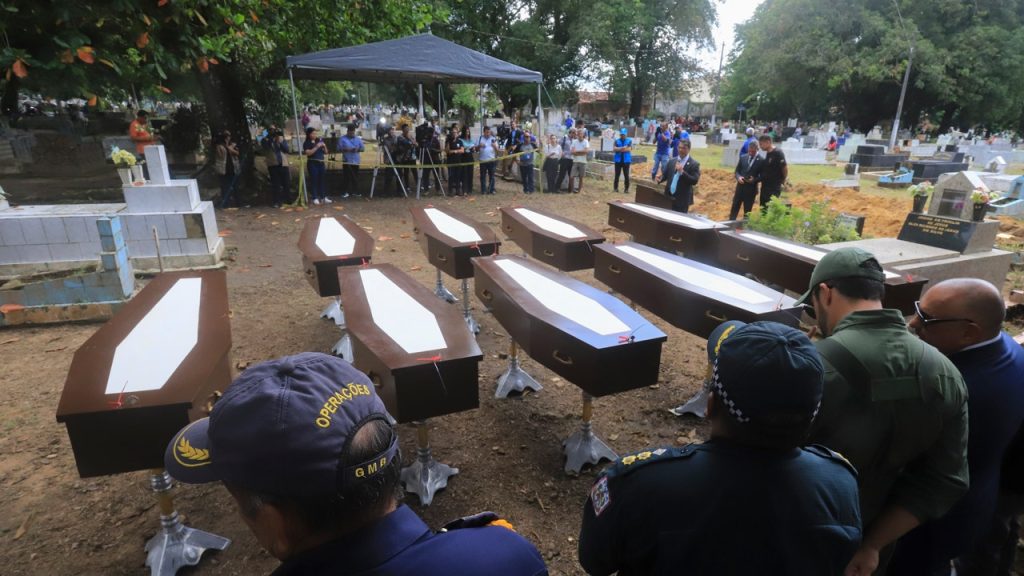The bodies of nine migrants found on an African boat off the northern coast of Brazil were buried in a solemn ceremony in the Para state capital of Belem. Fishermen discovered the boat adrift on April 13, carrying decomposing bodies. Documents found on the vessel indicated the victims were migrants from Mali and Mauritania, suggesting the boat had departed the latter country after Jan. 17. The deceased were buried in a secular ceremony organized by various groups involved in their recovery, such as the U.N. Refugee Agency, the Red Cross, and the International Organization for Migration, along with Brazilian authorities.
The boat was approximately 39 feet long and carried 25 raincoats and 27 mobile phones, hinting that the original number of passengers may have been higher than nine. The boat was a blue-and-white fiberglass vessel that lacked a motor, tiller, or rudder when found. Its canoe shape matched Mauritanian fishing boats frequently used by migrants fleeing West Africa en route to the European Union through Spain’s Canary Islands. In 2021, a similar pattern emerged when seven boats from northwest Africa were discovered in the Caribbean and Brazil, all carrying deceased individuals.
Currently, none of the victims have been identified, but authorities have arranged for potential exhumations if the families of the deceased are located and wish to repatriate the bodies. Brazil’s criminology institute in Brasilia is conducting forensic examinations of the remains, with the Federal Police coordinating with Interpol and foreign organizations for necessary results. The number of people attempting the crossing from Africa to the EU has spiked by 500% this year, with many departing from Mauritania. Despite this, the journey is perilous due to strong Atlantic winds, leading to dehydration, malnutrition, and death.
More than 14,000 African migrants have reached the Canary Islands so far this year, prompting the EU and Mauritania to sign a 210 million euro deal aimed at curbing people smuggling and deterring migrant boats. Families in Mauritania have set up a commission to search for loved ones missing on the journey and are eagerly awaiting updates from Brazil. Bachirou Saw, a Mauritanian with Spanish citizenship, lost one nephew on the crossing and is still searching for another nephew who went missing in January. Saw has created a WhatsApp group to warn migrants of the dangers and help desperate families, with over 1,500 missing in the last six months from Mauritania, Mali, and Senegal.
Saw’s efforts to dissuade young men from emigrating by boat have led him to search Moroccan prisons and morgues for missing migrants. His sister is distraught over the uncertainty of her son’s fate, highlighted by the emotional toll of searching for missing loved ones. While some families celebrate their loved ones reaching Spain, others grieve the loss of sons lost at sea. The increasing number of women embarking on these treacherous journeys adds to the urgency in addressing the root causes of migration from Africa to Europe. The tragic stories of these migrants reflect the harsh realities faced by those seeking a better life, underlining the need for international cooperation to prevent further loss of life on perilous journeys.


